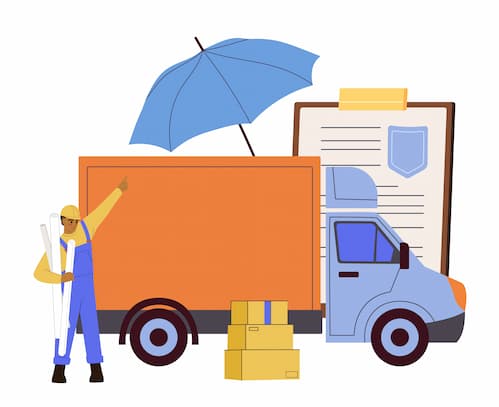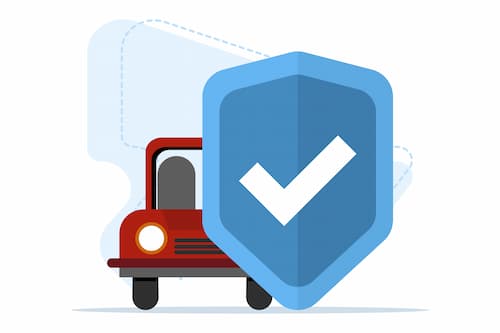- What is employer’s liability insurance?
- Coverage details: What employer’s liability insurance includes
- Do I need employer’s liability insurance?
- Benefits of employer’s liability insurance
- Employer's liability insurers for 2025
- Employer’s liability insurance costs: What small businesses need to know
- How much employer’s liability insurance do I need?
- How to get the right employer’s liability insurance
- What our expert says
- Frequently asked questions
What is employer’s liability insurance?
Employer’s liability (EL) insurance protects businesses from employee lawsuits. If an employee sues for additional damages that workers’ comp doesn’t cover, EL shields your business from the financial impact.
“Employer’s liability insurance helps protect against legal claims made by employees due to work-related injuries or illnesses not covered by workers' compensation,” says Paul Koenigsberg, managing partner of Koenigsberg & Associates, a personal injury law firm in New York.
“One common misconception is that workers' compensation alone provides full protection, but it often excludes lawsuits related to negligence or unsafe working conditions,” he says.
Coverage details: What employer’s liability insurance includes
Employer liability policies address four specific areas that workers’ comp may not fully cover.
- Third-party lawsuits: If an employee is hurt on the job and blames a third party, such as an equipment manufacturer, they might sue that third party, which might then sue the employer if the manufacturer doesn’t believe the equipment was properly maintained.
- Consequential bodily injury: This covers situations where an employee’s injury indirectly causes harm to a family member. For instance, if an employee’s spouse injures themselves while taking care of the employee, it can cover the spouse’s medical bills.
- Dual capacity suits: This occurs when an employee sues the employer in an additional role. For example, if a company makes the equipment the employee uses, the employee might sue the company as both an employer and a manufacturer.
- Care and loss of services: If an injury impacts an employee’s family-care responsibilities, a lawsuit can claim the cost of hiring household help (like childcare or cleaning services).
The cost of employer’s liability insurance is a modest investment for what you get. If you face a lawsuit that won’t be covered by workers comp, you can file with your EL to step in and cover the cost of legal fees, settlements and judgments when employees pursue monetary damages.
Employer’s liability insurance will provide coverage up to policy limits, minus any deductible, for:
- Court costs
- Attorney fees
- Settlements
- Judgments
EL is often bundled with workers’ compensation policies. However, workers’ comp regulations vary by state. North Dakota, Ohio, Washington and Wyoming require employers to buy workers’ comp insurance from a state fund, which may not include employers liability insurance.

Do I need employer’s liability insurance?
EL is not a requirement for small businesses. However, it can be essential for a company's financial wellness. The cost of defending against employee lawsuits — even when they’re unfounded — can lead to high legal expenses that many small businesses can’t afford.
Benefits of employer’s liability insurance
The obvious benefit of employer’s liability insurance is financial. Even with workers’ compensation in place, some employee claims aren’t fully covered by workers’ comp, leaving the business vulnerable.
EL also supports cash flow stability — your insurance covers the legal costs, preserving your funds for daily operations.
Employer's liability insurers for 2025
Many major insurers offer employer’s liability insurance coverage, either bundled with workers’ comp or as a standalone policy. Based on our findings, some top providers offering EL include:
- Chubb has high-limit liability options for small businesses of all sizes, particularly good in industries with complex risk exposures.
- Hiscox specializes in small business insurance for freelancers, startups and growing businesses, with flexible options for different needs and budgets.
- Liberty Mutual provides tailored insurance options for middle market companies across a range of industries.
- Nationwide is known for customizable coverage and surety bonds, and companies can adjust coverage as they scale.
- State Farm is the largest insurance company in the U.S. with an extensive network of local agents. Unlike some carriers, clients must work with an agent to get quotes, purchase coverage and manage their policies.
- The Hartford is recognized for industry-specific coverage options, it has expertise in small- to mid-sized businesses.
- Travelers offers flexible coverage for high-risk industries to safeguard against unique exposures.
Employer’s liability insurance costs: What small businesses need to know
Employer’s liability insurance is typically part of a standard workers’ compensation policy, which costs small businesses an average of $45 per month, or $540 per year, according to small-business insurance broker Insureon.
However, many smaller companies with fewer employees or lower-risk operations pay less — nearly one in four businesses pays under $40 monthly for combined workers’ comp and EL coverage.
An employer's liability insurance policy typically comes with coverage limits of 100/500/100, according to SFM, a workers' comp insurer based in Bloomington, Minnesota. Coverage breaks down this way:
- $100,000 per accident
- $500,000 per policy
- $100,000 per employee
Higher coverage limits may be available, depending on your insurer.
Factors affecting employer’s liability insurance premiums
The cost of employer’s liability insurance for any one business depends on several factors. Finding cheap employer’s liability insurance may depend on your provider, industry risk factors and business size. Here’s a look at the primary drivers:
- Payroll and the number of employees
- Location and state regulations
- Industry and risk factors
- Claims history
- Coverage limits
- Medical costs
How much employer’s liability insurance do I need?
The right amount of employer’s liability insurance depends on your business size, industry risk and financial situation.
Industry data supports coverage of $100,000 to $500,000 per incident for lower-risk businesses, while high-risk industries — like construction, manufacturing and transportation — may need higher limits.
Employer’s liability insurance limits
You’ll have multiple limit options to customize your policy to your business needs. Standard policies include a per-incident limit, which is the maximum amount the insurer will pay for a single claim, and an aggregate limit, which caps the total payout for all claims within a policy period.
How to get the right employer’s liability insurance
To get the right employer’s liability coverage, look at common risks within your industry, primarily if your business operates in high-risk fields like construction or manufacturing. Working with an outside expert or insurance broker can help you do this.
“Small businesses should carefully review policy exclusions and ensure their coverage matches their risk exposure, to avoid costly legal pitfalls,” Koenigsberg says.
It also helps to get quotes from multiple providers to compare options and consult an insurance expert to confirm the best coverage limits for your business. With the right policy, your company gains essential protection and stability to manage employee risks confidently.

What our expert says
Frequently asked questions
Is employer’s liability insurance compulsory?
EL insurance isn’t compulsory. However, it is often bundled with workers’ compensation insurance, which is required in all states but Texas.
Is employer’s liability the same as professional liability?
Employer’s liability is not the same as professional liability insurance. Each covers different risks. Employer’s liability insurance protects against employee injury claims not covered by workers' comp, while professional liability covers claims of errors or negligence in professional services, such as consulting.
What is employer’s liability in workers’ compensation?
Employer’s liability insurance is “part 2” of a workers’ compensation policy and covers legal fees and settlements when employees sue for damages that workers' comp doesn't fully address. It provides a financial safeguard for businesses in cases where employees allege negligence or seek damages outside the scope of workers’ comp benefits.
Is employer’s liability the same as workers’ compensation?
No. Workers’ comp covers an employee’s medical expenses and lost wages after a workplace illness or injury. Employer’s liability insurance, meanwhile, protects the employer if an employee sues for additional damages.
Does general liability cover workers’ comp?
General liability insurance doesn’t cover workers’ compensation claims. General liability protects businesses from third-party claims, such as customer injuries or property damage. Workers’ compensation specifically covers workplace injuries and illnesses for employees.
Is employer’s liability coverage the same as employment practices liability coverage?
No, they are completely different. Employer’s liability coverage protects against lawsuits that involve a physical injuries or illnesses sustained by an employee. Employment practices liability insurance protects the employer against lawsuits filed by employees who allege wrongful discharge, failure to promote or other forms of unfair discrimination.




